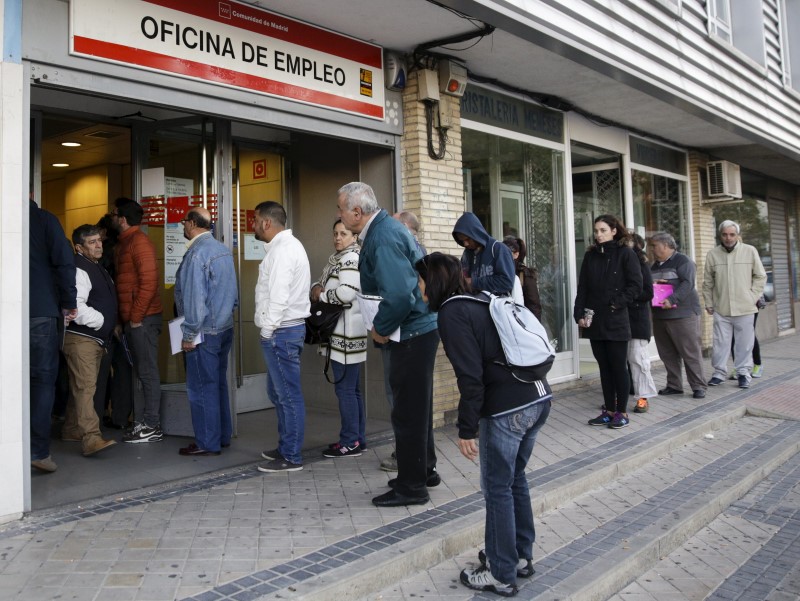By Sarah White
MADRID (Reuters) - Spain's unemployment rate fell to its lowest level in over four years in the third quarter at 21.2 percent although the pace of job creation slowed slightly just weeks ahead of a closely fought general election.
Frustration over an enduring jobs crisis will weigh on the Dec. 20 vote, with many Spaniards divided over whether their prospects are improving after a double-dip recession that sent unemployment soaring to nearly 27 percent in 2013.
The falling jobless rate is a potential boost to centre-right Prime Minister Mariano Rajoy, whose hopes of re-election rest on selling an economic recovery.
The number of people out of a job fell by just over 298,000 in the third quarter from the second, according to the National Statistics Institute (INE) on Thursday, leaving 4.9 million people unemployed.
The unemployment rate is now slightly lower than it was when Rajoy was voted into office in late 2011. Yet the active population, the number of people employed or looking for work, also fell in the third quarter.
Spain still has the second highest rate of unemployment in Europe after Greece and joblessness remains a drag on an economic turnaround yet to trickle down to many in the country.
"Rajoy will have a strong card to play in the election campaign, but we're talking about macroeconomic indicators, which is different from real people feeling a real recovery," said Vincenzo Scarpetta, political analyst at Open Europe.
In the third quarter, 182,200 jobs were created, the INE data showed, less than the nearly 412,000 created in the second quarter.
That is not an unusual trend, after a boost from summer hiring during the tourism season tails off. But even when stripping out seasonal effects, the quarterly pace of jobs growth in the third quarter was 0.61 percent, down from 1.12 percent in the April to June period.
This slowdown chimes with signs the broader economic recovery cooled off in the third quarter, and comes amid warnings from Brussels that the government is overly optimistic about growth next year.

The European Commission said earlier this month the country's 2016 budget, passed by the Spanish parliament on Tuesday, risked breaking EU fiscal rules as a result.